NCC EVC Rallies Stakeholders to Protect Digital Infrastructure and Drive $1 Billion Broadband Investment
NCC EVC Rallies Stakeholders to Protect Digital Infrastructure and Drive $1 Billion Broadband Investment
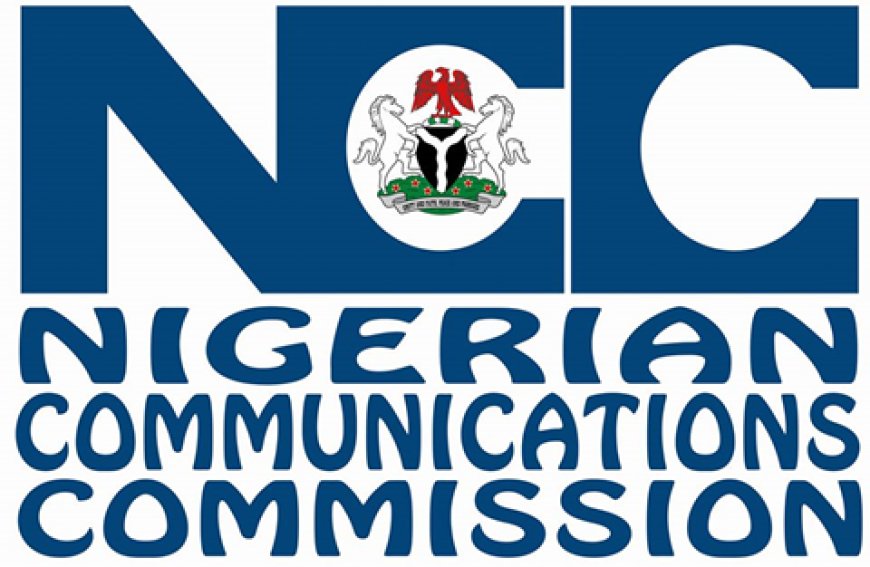
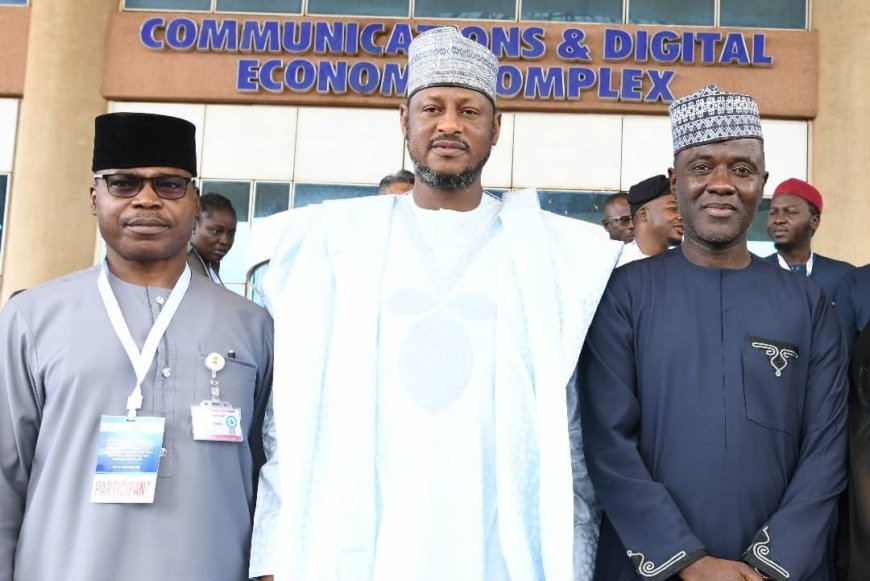
L-R: Director, Critical National Assets and Infrastructure Protection, Office of the National Security Advisers (ONSA), Enebong Effiom; Executive Governor, Katsina State, Dikko Radda and Executive Vice Chairman/Chief Executive Officer, Nigerian Communications Commission (NCC), Dr. Aminu Maida, during a business roundtable on broadband investment and critical national infrastructure protection hosted by the Commission in Abuja on Wednesday (October 8, 2025).
The Nigerian Communications Commission (NCC) is spearheading a national push to safeguard digital infrastructure and accelerate broadband investment, announcing that telecom operators have collectively committed over $1 billion toward expanding coverage.
Speaking at a Business Roundtable themed Right of Way and Protection of Broadband Infrastructure,” the Executive Vice Chairman (EVC) of the NCC, whose remarks were delivered at the NCC Digital Economy Complex on October 8, 2025, framed connectivity as the quiet engine of the national economy, asking: "How much is an hour of connectivity worth?"
The Economic Imperative: Why Connectivity is the New Engine
The EVC stressed that broadband is no longer just about faster downloads—it is about economic inclusion, productivity, and national resilience. With Nigeria's current broadband penetration at roughly 48.81% (as of August 2025), the EVC highlighted research showing that a 10% increase in penetration can drive approximately 1.38% GDP growth in developing economies.
He noted that with over 200 million people and a median age of 18, Nigeria can emulate countries like India (whose IT industry is worth over $240 billion annually) by equipping its youth with reliable, affordable, high-speed connectivity.
The current goal, set by the National Broadband Plan (2020–2025), is to achieve 70% penetration and deploy 90,000 kilometres of fibre optic backbone by the end of 2025.
Major Progress in Safeguarding Digital Lifelines
The NCC has translated this vision into strategic action, highlighting two key successes in tackling the major barriers to broadband deployment:
The EVC announced that the CNII Presidential Order, signed by President Bola Ahmed Tinubu in June 2024, now guarantees the proactive protection of telecom infrastructure.
The NCC, in collaboration with the Office of the National Security Adviser (ONSA), has set up an Industry Working Group to operationalize this mandate.
The Order provides executive backing for law enforcement to deal with vandalism, theft, and denial of service. The EVC noted that ONSA has already dismantled major cartels responsible for equipment theft in the last two years.
The high cost of RoW fees remains a significant barrier. The NCC has intensified advocacy with state governments, leading to notable waivers:
11 States now offer zero RoW charges (with five—Adamawa, Bauchi, Enugu, Benue, and Zamfara—waiving fees in the last two years).
17 States have capped the fee at the agreed-upon rate of ₦145 per linear meter.
The Commission is also promoting a “dig-once” coordination strategy with public works departments to reduce civil-works costs and avoid fiber damage.
The EVC confirmed that regulatory interventions have strengthened investor confidence, resulting in a collective commitment from operators to invest over $1 billion in additional rollout investments to expand coverage nationwide.
Furthermore, the NCC has commissioned a wholesale Fibre Study designed to open up existing and future backbone infrastructure on transparent terms. This intervention is expected to unlock last-mile expansion and facilitate easier interconnection between backbone owners and Internet Service Providers (ISPs).
Despite these efforts, the EVC revealed that infrastructure attacks remain a massive challenge:
Between January and August 2025, Nigeria recorded 19,384 fiber cut incidents, 3,241 cases of equipment theft, and over 19,000 cases of denials of access to telecom sites.
These disruptions cause prolonged outages and revenue losses, underscoring the necessity of continued collaboration between regulators, security agencies, and citizens.
What's Your Reaction?







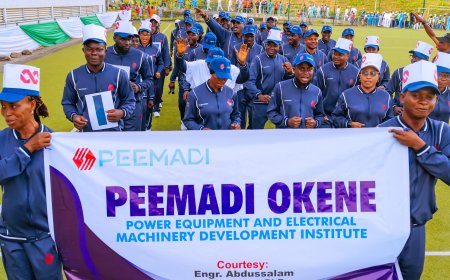

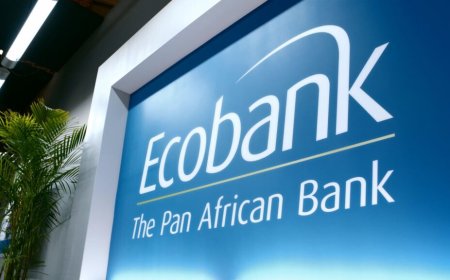




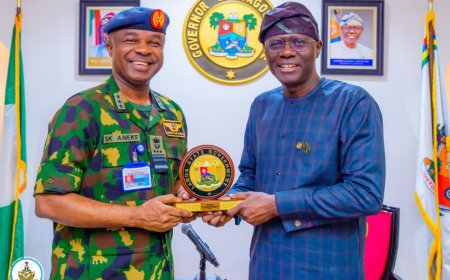




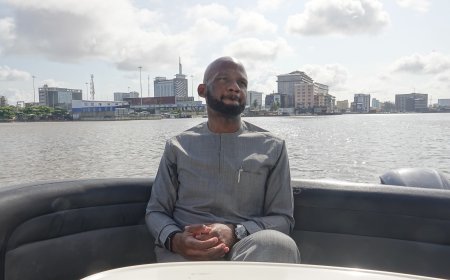
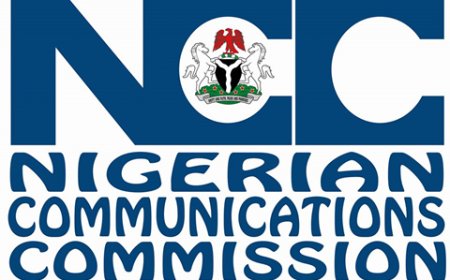
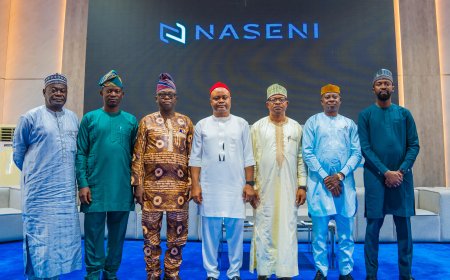


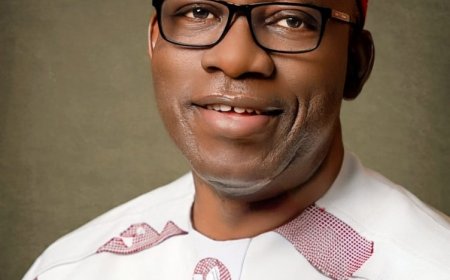

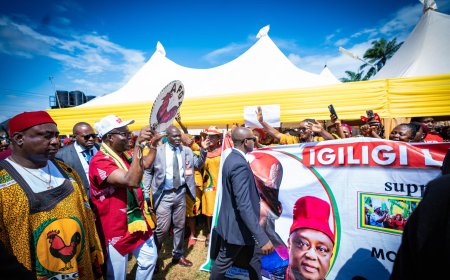



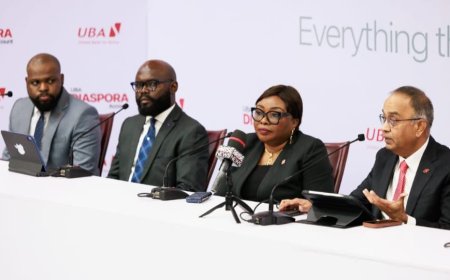
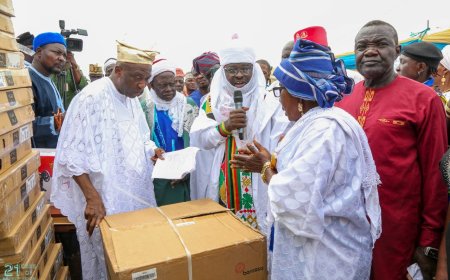











 The Chairman and Chief Executive Officer of Adron Homes and Properties Limited, Aare Adetola Emmanuelking, has congratulated the Government and people of Oyo State as the state marks its 50th anniversary, describing the occasion as a celebration of resilience, cultural pride, and sustained progress.
The Chairman and Chief Executive Officer of Adron Homes and Properties Limited, Aare Adetola Emmanuelking, has congratulated the Government and people of Oyo State as the state marks its 50th anniversary, describing the occasion as a celebration of resilience, cultural pride, and sustained progress.



